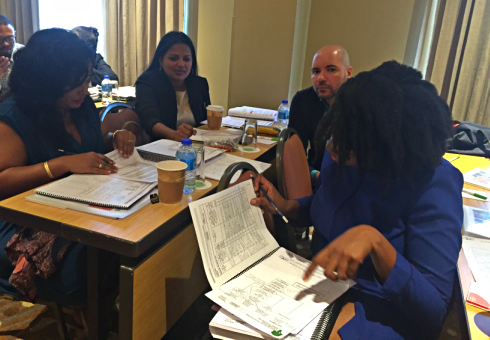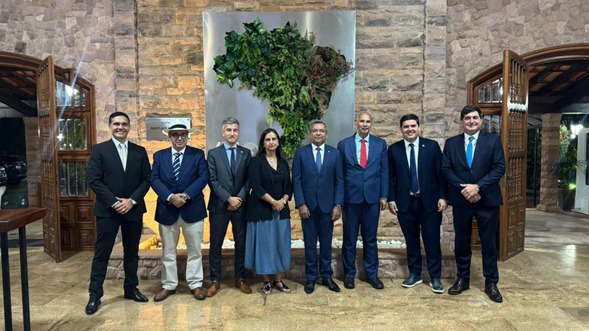A total of 33 food safety professionals from Jamaica and Trinidad and Tobago were certified by the Food Safety Preventive Controls Alliance (FSPCA). The training was organized by the Foreign Agricultural Service (FAS) of the U. S. Department of Agriculture, the U. S. Agency for International Development (USAID) and the Inter-American Institute for Cooperation on Agriculture (IICA).

San José, October 18, 2016 (IICA). As lead instructors, the newly certified professionals will be able to train local exporters, civil servants and representatives of the private sector, who will then be qualified to implement preventive controls based on the standardized FSPCA curriculum, which is recognized by the Food and Drug Administration (FDA).
The idea is to meet the requirements laid down in the Rule on Preventive Controls for Human Food established under the U.S. Food Safety Modernization Act (FSMA).
In Trinidad and Tobago, 17 professionals already have FSPCA certification, while 16 professionals have received training in Jamaica. The courses were taught by FSPCA instructors Matthew Botos and Marcos Sánchez.
Gregg Rawlins, IICA Coordinator for the Caribbean Region, said that this had been a very special occasion for the Caribbean region. He stressed that the partnership between FAS-USDA, USAID and IICA had been very productive, and expressed the hope that they would continue to work together in the future.

“There have been many questions about this issue, and this joint effort gives us an opportunity to have a staff of certified instructors at the local level, so as to minimize the impact of the new regulations and enable export firms to continue operating unhindered,” said Robert Ahern, Principal Specialist in the Agricultural Health and Food Safety Program of IICA.
“The certified professionals now have more in-depth knowledge of the FSMA rules on preventive controls, so they will be able to apply implementation and training strategies in their own countries, with support from FAS and IICA,” said Ingrid Borrero, FAS Coordinator for the project.
IICA, along with its partners and with support from the FDA, has been training producers in Latin America and the Caribbean on the proposed rules and the final FSMA rules since 2014. To date, around 1400 individuals have been trained in this area, which is relevant to the export of agricultural products to the United States.
For more information, please contact ana.cordero@iica.int











